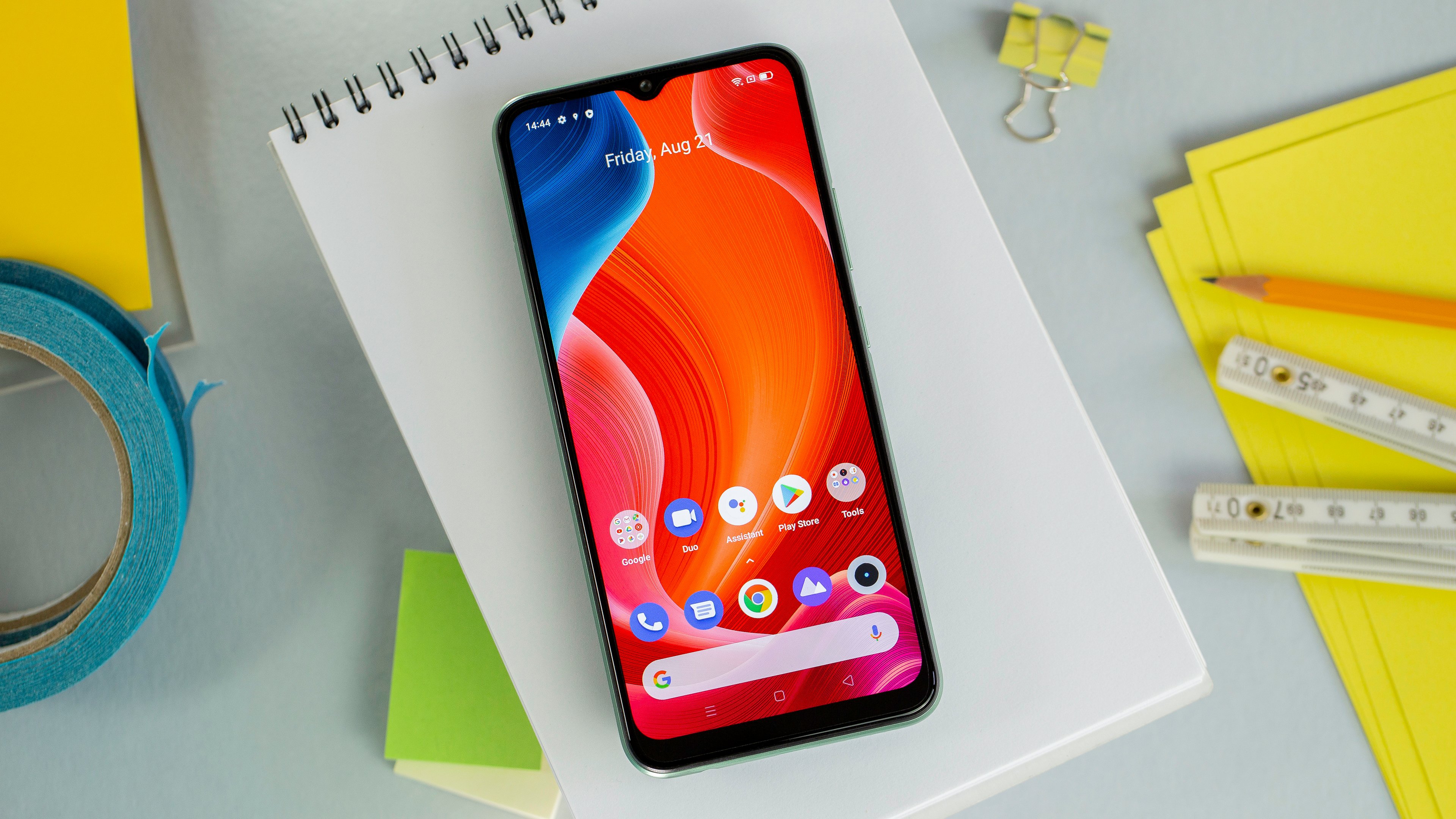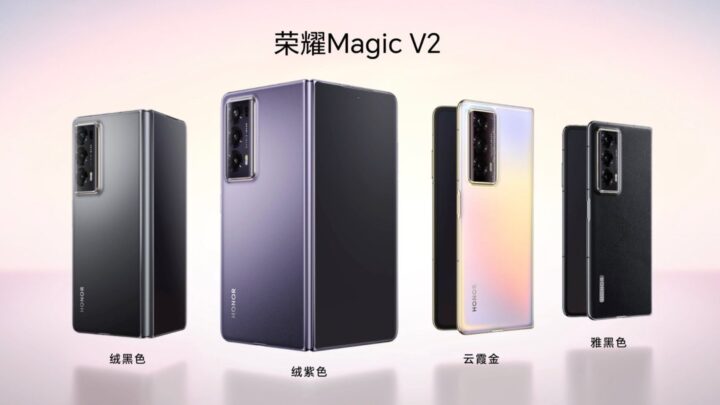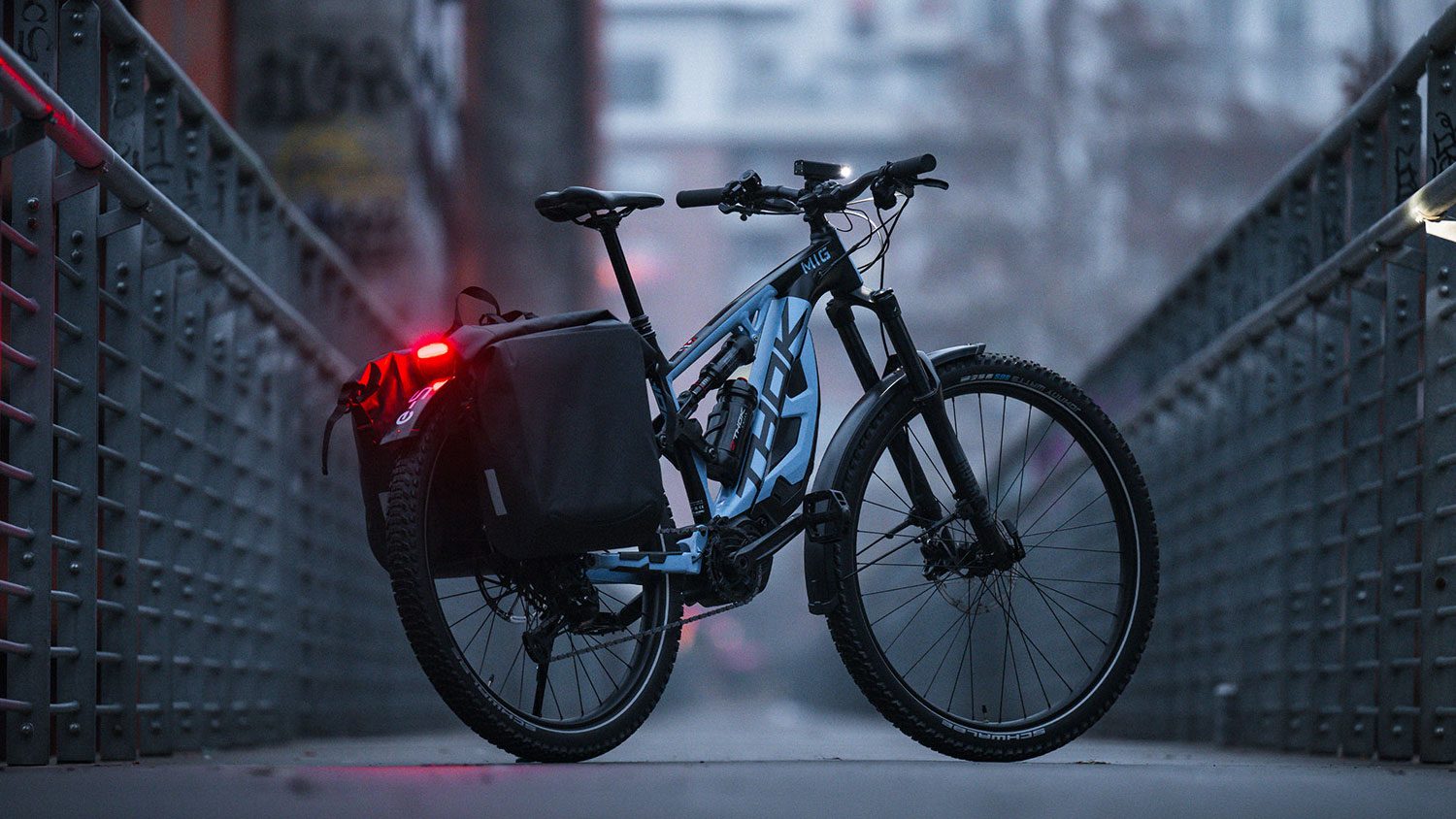With the entry-level C11 smartphone, can Realme be able to take smartphones that retail for below €100 to a whole new level of performance? After all, the Helios G35 is one of the latest SoCs to be released. The manufacturer designed this processor specifically to cater to affordable gaming smartphones, and that sounds quite promising! Apart from the number of cores that this chipset carries, the smartphone also exudes personality with an iconic bar and in my opinion, a far too obvious manufacturer logo right at the back – accompanied by a generous battery size that offers a whopping 5,000 mAh. In this review, we will find out together just how well the new processor performs in the Realme smartphone.
Realme C11 release date and price
With a recommended retail price of €89, the Realme C11 was released in India earlier this July 2020. It is a real bargain when released here, having seen a €10 increase in Europe, which is about 6,000 kilometers away. According to the manufacturer, the recommended retail price stands at €99, and many online shops offer the smartphone for prices starting at €120. Hence, I would highly recommend purchasing from Realme’s online store until the prices of third-party sellers drop a little.
The Realme C11 will be available in Mint Green and Pepper Grey. The review unit that we obtained happens to be Mint Green, which you can take a peek at in this review.
What I like about the Realme C11…
The battery life
Shortly after the introduction of the new Pixel 5, Google received a lot of praise on the internet for the enlarged battery. But when you take the Realme C11 into consideration, the new Pixel 5 smartphone simply cannot keep up with the Realme offering. This is because Realme managed to pack a full 5,000 milliampere-hours battery into a cheap smartphone. Huawei had already managed this balancing act in the Honor 9A, but there is one downside to the large battery capacity – the Realme C11 would have to settle for a comparatively thick housing that measures 9.1 millimeters.
If you do not mind the thickness of this device, then you will be pleased to note that the C11 can run up to two days without having to plug it into a nearby power outlet – albeit under normal usage patterns, of course. Once again, context is required. Each smartphone user’s usage pattern differs one from the other, so when I use the term ‘normal use’, I am referring to occasional surfing, phone calls, photography, and texting on both social media and instant messaging apps, which is part of everyday life. Of course, the battery indicator drops more when you use the smartphone as a mobile gaming machine or try to maximize the video functions of the dual camera for long stretches of time. Since most users charge their smartphone every night anyway, the battery is more likely to provide an edge under exceptional situations. If you are traveling and are on the road for two days, you can leave the Powerbank at home by minimizing the use of your handset.
The battery life should even exceed that of the Honor 9A due to the more modern and, according to the manufacturer’s specifications, a more efficient energy-saving processor. In practice, however, there was no clear difference between the two devices from which we could tell. Unfortunately, this statement remains true even when charging the batteries. Similar to the 9A, the Realme C11 comes with an archaic micro-USB port and charges extremely slowly at a mere 10 watts. If you do not make the effort to charge your smartphone overnight while sleeping, you might end up sitting next to your smartphone for a good three hours while it remains plugged in.
Call quality
If manufacturers are already removing functions from their smartphones for cost savings reasons, then the basic functionality should be all the more convincing.
Here the Realme C11 makes its case with surprisingly clear call quality, which impressed both me and my counterpart. Any background noise could not be picked up in the conversation as the smartphone managed to remove most, if not all, background noise under normal settings. Regarding its telephone capabilities, I must also mention the dual SIM slot that comes with a pair of standby SIM slots so that you can have a couple of SIM cards running simultaneously. But I do not want to bore you much longer with this topic – who will still be yakking on a smartphone in 2020 with their mobile line?

Operating system and software features
Much more important these days are the small tweaks and details, and these are areas where the operating system shines – if the manufacturer managed to do a good job. Here, the Realme UI is a real goldmine of tricks that the smartphone could do with a little bit more promotion. If you decide to buy the Realme C11, you should take a few minutes to go through the settings.
I was able to find the gesture control that was part of Android 10 after being previously unimpressed with it, but the iteration that this smartphone has taken made it look a bit more modern. I also discovered a very useful dark mode and gestures, with which the smartphone can be controlled even when the display is turned off. While many smartphones in standby will only respond to tapping gestures in order to wake up, you can now draw gestures on the display in order to trigger certain actions. This is of course, not a new novelty, but the Realme C11 does gain a lot of charm by offering this.
The installed Android 10 operating system works perfectly and best of all, it is up-to-date. During the review duration, this smartphone received the security patch that was released in August by Google at the end of September. Realme also announced that its Realme UI 2.0 interface is based on Android 11 and published a roadmap for this. Unfortunately, the Realme C11 is not to be found on this roadmap and a member of the Realme Forum also confirmed that Android 11 has not been confirmed for this entry-level smartphone. Which is a pity, really, because Realme is conceding a potentially huge plus point here.
Camera
There were times when smartphone cameras were simple. You launched the app, snapped a photo and it was kind of all right. In the meantime, operating some smartphone cameras is almost as complicated as operating a “real” camera. For this reason, the dual camera of the Realme C11 is a refreshing change.

This is because the second lens only serves as a depth sensor and does not add alternative focal lengths to the range of functions. The resolution of 13 megapixels on the main camera is fully sufficient for mere viewing and printing in smaller formats. However, the camera is not particularly fast with an f/2.2 aperture.

The functionally deprived camera delivers good results and is easy to use for basic shots. If you are not too happy with that, then take a step back and think of users who are not quite technically skilled as you. If you want to just record a memory or send a picture via WhatsApp, both the quality and the range of functions are sufficient. Real(me)y easy!

What I don’t like about the Realme C11…
The performance and durability
Now is the time for nitpicking, because in terms of performance I have to measure the smartphone by today’s standards. Basically, a smartphone should be able to handle at least the operating system and rudimentary functions without any lag and with acceptable loading times immediately after booting it up. And this is exactly where the Realme C11 runs into problems, simply because the phone is, to say the least, very slow!
In order to demonstrate this, I have thought of a minimal benchmark: I launched apps on the Realme C11 via my left hand and kept track of the launch time with my right hand. Practically speaking, here are my findings.
The first order of business is to read the latest news on NextPit, where I unlocked the Realme C11 with my face (2 seconds waiting time) and launched the Chrome browser (3.2 seconds waiting time) before entering the URL. If I want to shoot a selfie, I used a gesture when the phone is on standby, and it took 6.5 seconds until the camera launched. Switching to the selfie camera took another 2 seconds, and thankfully, the selfie was captured with minimal delay. There were times on occasion when scrolling through content resulted in extreme and sudden stuttering. At long last, I launched Google Assistant and the YouTube app by voice command. It took the Realme C11 an abysmal 15 seconds of inactivity before the app appeared on the screen.

On their own, the loading times for individual apps do not seem to be very long, but when launching many apps one after another, one ends up with the feeling of constantly waiting for the smartphone to act.
This impression was also shared by other users in the Realme forum, who asked for solutions for the poor performance. This raised the question of how the low-performance smartphone performed during prolonged use.
The fact is, a smartphone that stutters or is jerky without any additional apps launched is never a good sign. If after half a year of accumulating hundreds of photos in the internal memory, you follow it up by installing a few additional apps, smartphones tend to end up even slower. With the Realme C11, there is a high probability that you will long for a new smartphone – and you shouldn’t do that even with a €100 smartphone after such a short time.
Since the Mediatek Helio G35 is marketed as a gaming processor, here are a few words about mobile games. Call of Duty: Mobile is playable with low graphics settings, but even then, there will be stuttering. This mainly happens when you switch from the app to the home screen. Multitasking with only 2GB of RAM is a thing of the past.
The outdated hardware
Because the smartphone’s technology is rather archaic (apart from the processor), I suppose this is why everything seems to run slower than expected. According to the system diagnostics, the already mentioned 2GB of RAM happens to be used up close to 80 percent most of the time, and this is without even having a fingerprint sensor on the back of the chassis or below the 6.5-inch IPS display. With WiFi 802.11 b/g/n, neither WiFi 6 nor WiFi 5 connectivity are available for wireless communication, and wired USB 2.0 via micro-USB carries a retro look.

These are the permanently painful shortcomings that you still have to accept when buying such a cheap smartphone. They make the Realme C11 look as if it has stepped out from the past, and I am concerned about the long-term satisfaction for users.
Integrated Speaker
Before we bring this review to a conclusion, here are a few words about the installed speaker. With the C11, Realme relies on a mono loudspeaker that fires downwards from the case. Basically, the speaker does sound as disappointing as its description. Any music that is played back is embarrassingly quiet, despite the track having its fair share of bass notes and highs. The speaker is so weak that even ringtones are surprisingly quiet – which is anathema since the whole idea of a smartphone is to be contactable. It is therefore advisable to choose a particularly shrill tone, otherwise the Realme C11 would be practically useless as a communications device if someone else wants to contact you!
Final verdict
The Realme C11 offers a rather patchy feature set for just under €100 and it also comes off as mediocre-to-poor in terms of performance. Only the large battery, the acceptable camera performance, and the well-tweaked operating system remained as positives in my memory. That’s a pity, as there were high hopes for the new Mediatek processor at the very beginning. However, the relatively clean handset began to experience a slowdown in performance not too long after using it without having me install anything else set off the alarm bells in my head concerning long-term satisfaction after purchase. If you use your smartphone every day and depend on it in your everyday life, you should save up for a few more weeks and pick out a more expensive alternative. But if all you want to do is to purchase a smartphone for your elderly parents or children, then the Realme C11 will is exactly what you need without having to pick up a used handset that might deliver more problems instead.
Alternatives to the Realme C11
In the price range around and under the €100 mark, there are other alternatives out there such as the Honor 9A or the Alcatel 1S, but these are also plagued by the same demons. Micro-USB and stuttering performance in the operating system definitely cannot be found when picking up more expensive smartphones. Starting at €150 or €200 ($175-$235), you can expect devices like the Alcatel 3L or the Motorola Moto G8 Power, which are top-notch devices in their class. We advise you to look for other alternatives in the best smartphones that you can buy for under $200.













